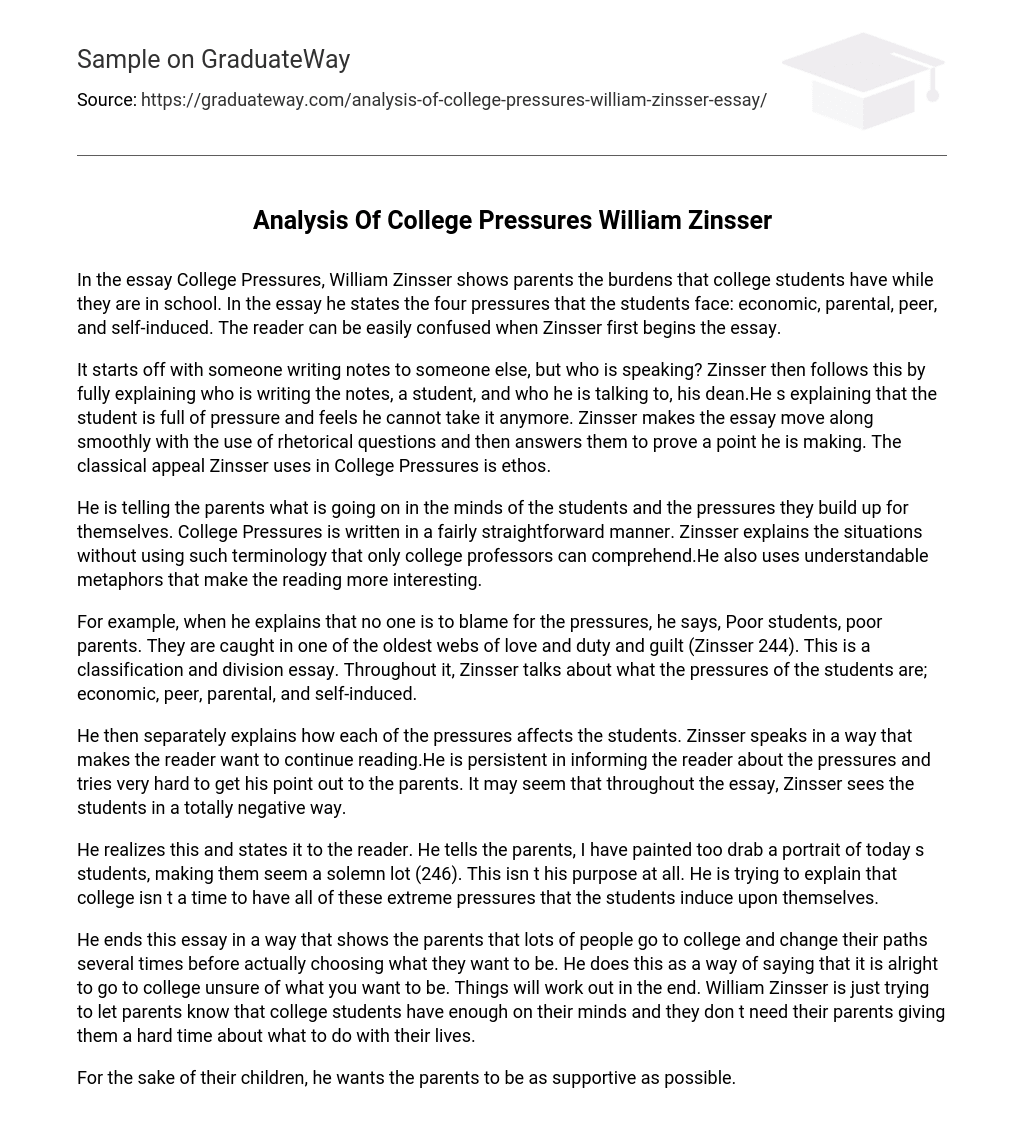William Zinsser’s essay “College Pressures” highlights the various burdens faced by college students. These pressures, which include economic, parental, peer, and self-induced pressures, are introduced by Zinsser in a way that may initially confuse the reader.
The writer begins by someone writing notes to another person, but it is not clear who is speaking. Zinsser then clarifies that the notes are written by a student to his dean, expressing the student’s overwhelming pressure and desire to give up. Zinsser effectively moves the essay forward by using rhetorical questions, which he promptly answers to support his argument. The use of ethos is evident in Zinsser’s utilization of classical appeal in College Pressures.
He is explaining to the parents the thoughts and self-imposed stress that students experience. College Pressures is written in a clear and direct manner, avoiding complex language that only academics would understand. The author also employs relatable metaphors to make the reading more engaging.
In this classification and division essay, Zinsser discusses the various pressures faced by students. For instance, when discussing the lack of blame for these pressures, he empathetically states, “Poor students, poor parents. They are caught in one of the oldest webs of love and duty and guilt” (Zinsser 244).
In the essay, Zinsser details the various pressures that students face and provides an engaging narrative that captivates the reader’s attention. He is determined to communicate his message to parents and discusses the impact of each pressure on students. Throughout the essay, Zinsser portrays a negative perspective of students.
In expressing his understanding, the author acknowledges that he has presented a gloomy portrayal of modern-day students, leading them to appear quite serious (246). However, this was never his intention; rather, he seeks to convey that college should not be a period marked by excessive self-imposed stress.
In his essay, William Zinsser reassures parents that it is common for college students to change their career paths multiple times before deciding on their desired profession. By doing so, he emphasizes that it is perfectly acceptable to enter college without a clear career goal in mind. Ultimately, Zinsser aims to alleviate the pressure on college students who already have numerous concerns by urging parents not to further burden them with directives on life choices.
He desires for parents to provide maximum support for the sake of their children.





